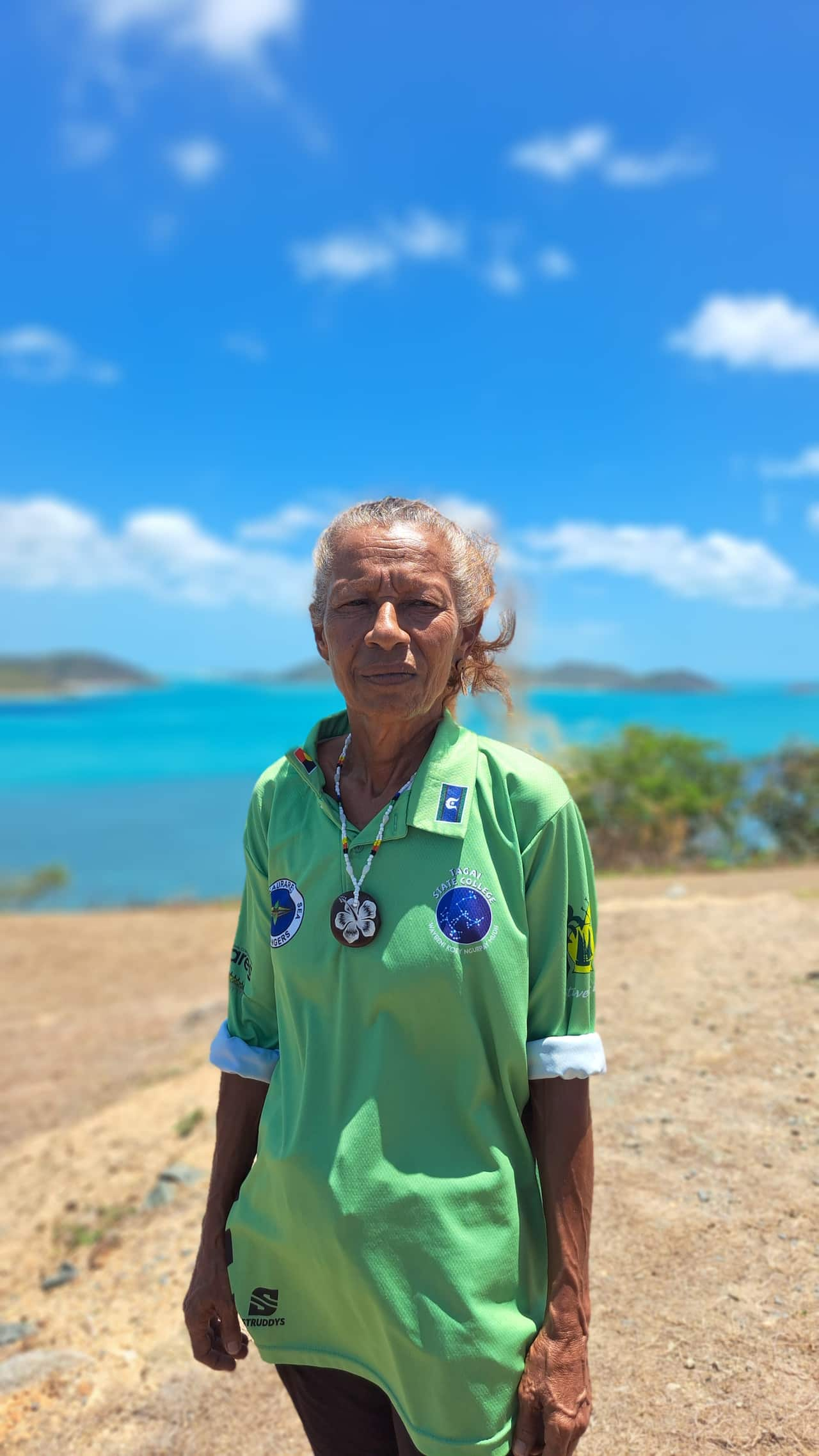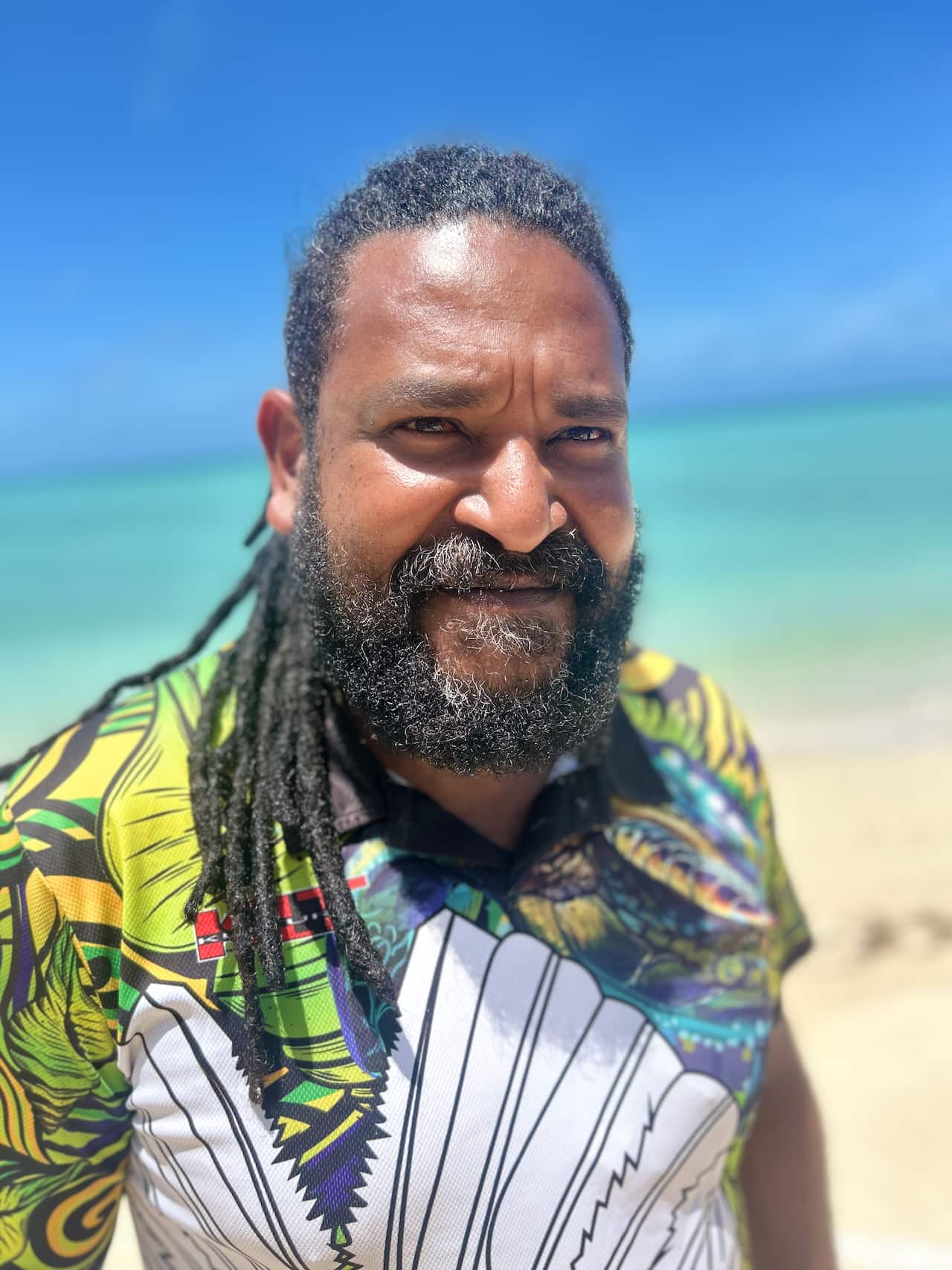

Living on the front line of the climate crisis
In the Torres Strait, locals are already feeling the impact of a warming globe. They've also got their own ideas about fighting it.
Published
Updated
Zenadth Kes - the Torres Strait Islands - is a cluster of almost 300 land masses scattered between the tip of Cape York Peninsula and Papua New Guinea.
These islands, and the communities that call them home, are on the front line of the global climate crisis.
For the 5,000-plus locals of Zenadth Kes, climate change isn’t a distant threat: it’s a daily reality that is eroding land, culture, and identity.
Rising sea levels are swallowing shorelines, flooding homes, cemeteries, and sacred sites.
On low-lying islands like Saibai, Boigu, and Masig, king tides now regularly inundate communities, washing away ancestral graves and contaminating freshwater sources with saltwater.
For many Islanders, the damage is deeply personal — it strikes at the heart of who they are and where they come from.
Elders warn that the rising seas are not only destroying land but also dismantling a way of life that has sustained their people for thousands of years. The Torres Strait’s unique cultural practices, from traditional gardening to seasonal fishing and ceremonies, are all tied to the rhythm of the environment.
As climate change alters the weather patterns and sea temperatures, those rhythms are being disrupted.
In 2022, a landmark decision from the United Nations Human Rights Committee found that the Australian Government had violated the human rights of Torres Strait Islanders by failing to adequately protect them from the effects of climate change.
It was a world-first ruling - and a powerful recognition that the crisis in the Torres Strait is also a crisis of justice.
Enid Tom is an Elder of the Kaurareg people whose ancestral home of Muralug (Prince of Wales Island) has already felt the impacts of king tides.
In February 2022, the skeletal remains of a young Aboriginal woman estimated to be several hundred years old were uncovered by a rising ocean.
“The water went above the 100 meters, above the native title area. And that's never happened before,” she says.

Enid fears that more extreme weather in coming years, added to king tides and rising sea levels, will wreak untold damage to more exposed sections of Muralug.
“I fear that we lose all our biodiversity and our sacred areas and our paintings along the perimeters of Prince of Wales on the southwest side," she said.
"Our stories and our songs, places where we visit - there'll be nothing."
Torres Strait Islander climate advocate and Masig Islander Yessie Mosby also shares this anxiety from a changing climate.

“My greatest fear which we were told by the government [is] that within 30 to 50 years, we will be relocated from here to mainland Australia,” he says.
“My greatest fear is being refugees in our own country.
"I always tell our children, my kids and my nephews and nieces, the people here on Masig: 'If something like this happens, that we will have to be relocated to another place.'
“We'll be like helium balloons. We'll be just floating there with no touch, no attachments to nothing, whereas here on Masig, we're sinked into this country.
"We sink into this island. It belongs to us as much as we are belonging to her.”
Masig, or York Island, sits only three meters above sea level, making it one of the areas most at risk.
Unlike higher islands such as Muralag, Masig faces regular flooding during king tides and storms.
With rising seas and erosion threatening homes and sacred sites for the people of Masig, these changes are already part of daily life, a constant reminder of what's at stake as the climate continues to change.
Reports from the Torres Strait Regional Authority warn that several more islands face medium to high vulnerability, with limited space to retreat inland.
For many Torres Strait Islanders, the encroaching Sea is not just a distant threat, it's a visible and growing challenge that puts homes, culture and Country at risk.
Harry Nona - a respected Torres Strait Islander fisherman from Thursday Island - also speaks firsthand of the impact of rising sees and changing weather pattens already.
“Growing up back 20 years ago, the islands used to have a nice sand around them and turtles used to go up there lay the eggs," he said.
"But today, when I travel around the islands, there's no sand there, now there's rocks. Now, turtles are finding it hard to lay their eggs.
“Everything changed."
For many, the fear of becoming Australia’s first climate refugees is real.
Yessie Mosby fears a day when his people may be forced to leave Masig Island.
“You know, the saddest thing for us, the youth of this island - the younger generations - are hearing our Elders say, ‘'If that day comes and we’re still alive, just take the younger ones and move. We don’t want to go. We want to go with this island,’” he says.
“Why? Because their wife, their husband, their children, their mum and dad, aunties and uncles are buried here. Their genealogy is here. Their life memory is here. The culture and tradition is here.
“How would you practice all these traditional things where you've practiced for thousands of years? How would it be now for the next generations leaving? That is the emotional cycle of what we're looking at or coping with as Masig people,” Yessie concludes.
But there’s also fierce resilience.
Islanders are pushing for stronger climate action at every level, from local councils to the global stage.
They are documenting the changes, teaching their children about environmental stewardship, and calling on governments to keep global warming below 1.5 degrees.
The Torres Strait is a warning to the rest of the nation: climate change is not tomorrow’s problem — it’s happening now. And for the people of Zenadth Kes, protecting their islands isn’t just about survival — it’s about defending culture, sovereignty, and the future of generations to come.
The Point 'Crisis in Paradise' airs tonight, Tuesday 4 November at 7.30pm on NITV, and will be available to stream on SBS On Demand after broadcast.


